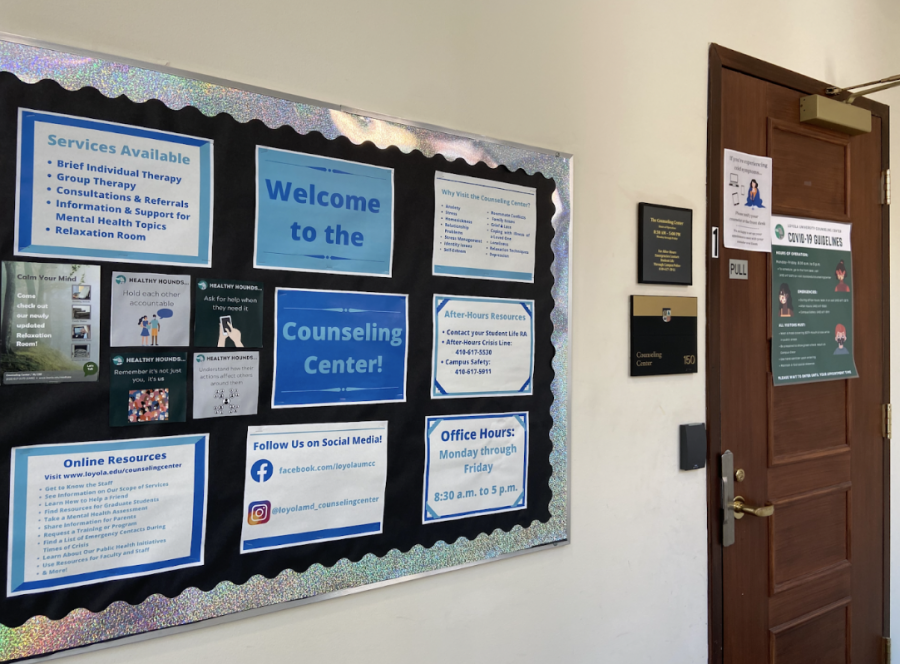Students who identify as black, indigenous, or people of color face greater difficulties in accessing resources for mental health. Most BIPOC students have grown up in a community that stigmatizes mental health or never spoke about mental health at all. Hanna Addis ‘24, a black and Ethiopian student, and Alondra Vargas ‘23, a Latinx student, grew up in communities that stigmatized mental health and mental illness.
In response to mental health issues, Addis grew up being told, “Just Pray. Go to Church. God will be there for you.” She was not provided with adequate resources to help her deal with her mental health. It is not uncommon for BIPOC communities to react this way to the mention of mental health, especially those who have a huge religious influence. Responses like these often force students of color to take matters into their own hands.
Vargas said, “I would go out on my own to find a therapist. It was hard because I didn’t ask anyone for any resources, because I didn’t feel like I could, and most therapists did not take my insurance.” Her struggle in finding proper mental health resources almost turned her away from seeking proper help, which is something common among a lot of BIPOC students.
Jackie Rogers ‘24, a black student, and Seemab Kazmi ‘22, a South Asian alum, both said that mental health is not commonly talked about in their racial and ethnic communities. Rogers attended a predominantly white institution as a child, which made her aware of the lack of conversation regarding mental health in her community.
“I noticed that their mental health was talked about, but didn’t see resources open to girls who look like me,” she said. Students often do not take advantage of mental health resources because they are unsure if they are able to use these resources.
Kazmi said that it took constant encouragement from others to seek the proper mental health help she needed due to the lack of conversation around this in her household. For other students like Seemab, it is often hard for students to rely on mental health resources at Loyola when they have never been offered any before in their life. One of the main resources that students can depend on is the Counseling Center. For many years, the Counseling Center has been providing free mental health services to students.
Jason Parcover, the Assistant Vice President of Student Well-Being and the Director of the Counseling Center, said “The health, wellness and well-being of the community is best measured by the health, wellness, and well-being of the most historically marginalized students. Equity and inclusion are not just buzzwords but at the heart of who we are.”
The Counseling Center is trained to be able to provide support to students of various identities on campus. The resources provided by this office are constantly evolving as the needs and identities of students evolve. Parcover said their staff is diverse, which allows students to pick a counselor that may have a shared identity or identities with them. Additionally, they provide affinity spaces based on identity and topics, such as LGBTQ+ identity, BIPOC identity, body image, and stress management.
“We understand that it might be a big decision,” said Parcover, “A student may feel like part of them wants support and the other may feel like they shouldn’t do that.”
Loyola alumni Seemab Kazmi met with a counselor for the first time during her junior year at Loyola. Kazmi was assigned a white female counselor. As a Pakistani and Shia Muslim, Kazmi was unsure of whether meeting with this woman would work out.
“It took a lot for me to trust her,” Kazmi said, “I was really wary because she was a white woman, but then she really listened to me.” Kazmi relied on this specific counselor throughout the rest of her time at Loyola. She especially appreciated the support her counselor provided at the rise of racism and hate against the Asian community during the peak of COVID-19. Before seeking help from the Counseling Center, Seemab also reached out to Emily Kane, the Assistant Director for Social Justice Ministry at Campus Ministry
While counselors are a great resource for students, they are not the only ones trained to provide mental and emotional support to students of color at Loyola. Students are also trained to provide support to others on campus. Vargas, who serves as a resident assistant at Loyola, said that training for resident assistants includes learning from the Counseling Center on how to provide emotional and mental support for students living on campus. Rogers, like other students, wishes she would’ve used the Counseling Center from the start of her journey at Loyola.
She encourages other students, particularly students of color to reach out as soon as possible, “Not being in a good state of mind is not something to be embarrassed of. The Counseling Center exists for a reason.” While there are many resources for mental health on campus and people to rely on, for many students of color, it is still hard to find resources to trust. The Counseling Center may not be the best resource for everyone but Parcover encourages students to try it out.
“Meet with someone once, check it out, and see what you think. Then decide if you want to come back or not. It will always be your decision,” he said. Counseling Center resources and further information can be found on their website here.
Featured Image Courtesy of Lupe Labra Valencia



















































































































